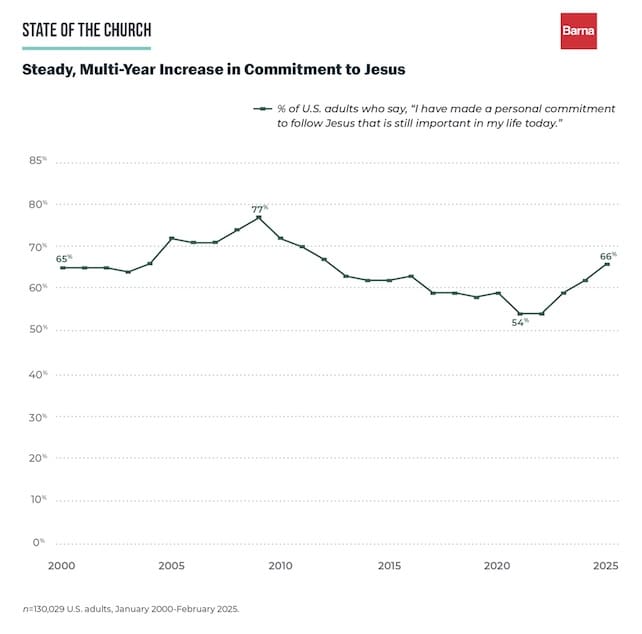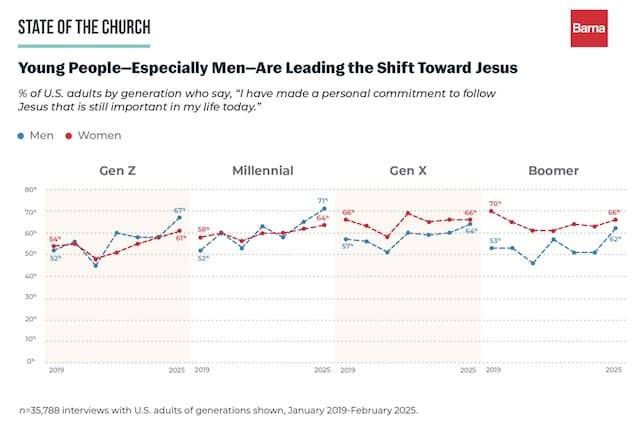At a time when organized religion in America faces scrutiny and skepticism, a new Barna study as part of the State of the Church 2025 initiative shows a groundswell of commitment to Jesus over the last four years.
According to Barna’s latest data, 66% of all U.S. adults say they have made a personal commitment to Jesus that is still important in their life today. That marks a 12-percentage-point increase since 2021, when commitment levels reached their lowest in more than three decades of Barna tracking.
RELATED: New Barna Data: Young Adults Lead a Resurgence in Church Attendance
This shift is not only statistically significant—it may be the clearest indication of meaningful spiritual renewal in the United States. Commitment to Jesus was lowest in 2021 and 2022, when it bottomed out at 54%. Since then, the research shows a steady, year-over-year increase in the key indicator.

In aggregate terms, the multi-year climb in public sentiment toward Jesus equates to nearly 30 million more U.S. adults who claim to be following Jesus today than in 2021.
“Undeniably, there is renewed interest in Jesus,” says David Kinnaman, CEO of Barna. “Many people have predicted the growing irrelevance of Christianity; however, this data shows that spiritual trends have a dynamism and can, indeed, change. This is the clearest trend we’ve seen in more than a decade pointing to spiritual renewal—and it’s the first time Barna has recorded such spiritual interest being led by younger generations.”
Get Barna’s free sermon slides meant to help you talk about the resurgence in beliefs in Jesus. Also, to gain access to more State of the Church 2025 updates, subscribe for free here.
Gen Z & Millennials Fuel the Turn to Jesus
Among the biggest drivers of the Jesus resurgence are younger generations—particularly Gen Z and Millennials. This is a significant change from previous Barna tracking, which showed Elders and Boomers as more committed Christians than younger generations.
Since the pandemic, however, Millennials and Gen Z have shown significant increases in commitment to Jesus, while Boomers and Gen X (especially women in these older cohorts) have remained mostly flat in their commitment levels to Jesus.

That sets up the context for another counterintuitive trend: men—especially younger men—are more likely to be Jesus followers than are younger women. For example, among Gen Z men, commitment to Jesus jumped 15 percentage points between 2019 and 2025. Millennial men saw a similar spike of 19 percentage points.

